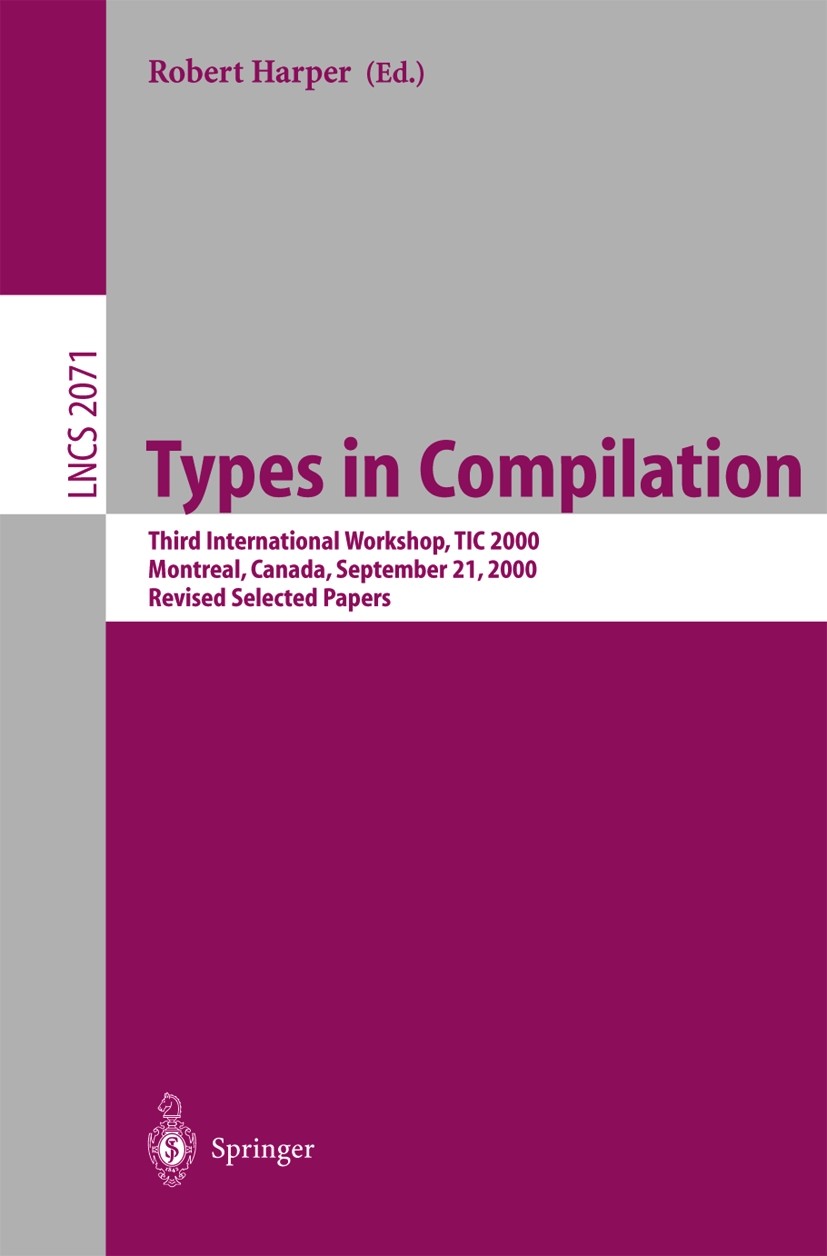| 书目名称 | Types in Compilation |
| 副标题 | Third International |
| 编辑 | Robert Harper |
| 视频video | http://file.papertrans.cn/932/931412/931412.mp4 |
| 概述 | Includes supplementary material: |
| 丛书名称 | Lecture Notes in Computer Science |
| 图书封面 |  |
| 描述 | The importance of typed languages for building robust software systems is, by now, an undisputed fact. Years of research have led to languages with richly expressive, yet easy to use, type systems for high-level programming languages. Types provide not only a conceptual framework for language designers, but also a ord positive bene ts to the programmer, principally the ability to express and enforce levels of abstraction within a program. Early compilers for typed languages followed closely the methods used for their untyped counterparts. The role of types was limited to the earliest s- ges of compilation, and they were thereafter ignored during the remainder of the translation process. More recently, however, implementors have come to - cognize the importance of types during compilation and even for object code. Several advantages of types in compilation have been noted to date: { They support self-checking by the compiler. By tracking types during c- pilation it is possible for an internal type checker to detect translation errors at an early stage, greatly facilitating compiler development. { They support certi cation of object code. By extending types to the ge- rated object co |
| 出版日期 | Conference proceedings 2001 |
| 关键词 | Assembly language; Java; data structure; data structures; programming; programming language |
| 版次 | 1 |
| doi | https://doi.org/10.1007/3-540-45332-6 |
| isbn_softcover | 978-3-540-42196-2 |
| isbn_ebook | 978-3-540-45332-1Series ISSN 0302-9743 Series E-ISSN 1611-3349 |
| issn_series | 0302-9743 |
| copyright | Springer-Verlag Berlin Heidelberg 2001 |
 |Archiver|手机版|小黑屋|
派博传思国际
( 京公网安备110108008328)
GMT+8, 2026-1-29 10:51
|Archiver|手机版|小黑屋|
派博传思国际
( 京公网安备110108008328)
GMT+8, 2026-1-29 10:51


